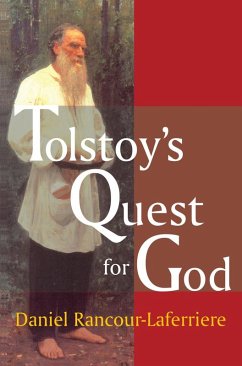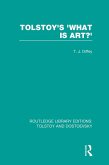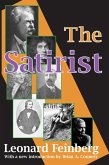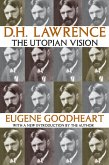Tolstoy suffered from periodic bouts of depression which brought his creative life to a standstill, and which intensified his need to find comfort in the embrace of a personal God. At times he was in such psychic pain he wanted to die. Yet Tolstoy felt that he deserved to suffer, and he learned to welcome suffering in masochistic fashion. Rancour-Laferriere locates the psychological underpinnings of Tolstoy's suffering in a bipolar illness that led him actively to seek suffering and self-humiliation in the Russian tradition of "holy foolishness." With voluntary suffering, and Jesus Christ as his model, Tolstoy advocated "nonresistance to evil," and in his daily life he strove never to return evil actions or words with physical or verbal resistance. On the other hand, being bipolar, Tolstoy in some situations would drift in a manic direction, indulging in delusions of grandeur. Indeed, the aging Tolstoy occasionally went so far as to equate himself with God, as can be seen from his diaries and personal correspondence.
The pantheistic world view which Tolstoy achieved at the end of his life meant that God was within himself and within all people and all things in the entire universe. By this time Tolstoy was also utilizing images of a mother to represent his God. With this essentially maternal God so conveniently available, there was nowhere Tolstoy could be without Her. For, in the end, Tolstoy's quest for God was a
Dieser Download kann aus rechtlichen Gründen nur mit Rechnungsadresse in A, B, BG, CY, CZ, D, DK, EW, E, FIN, F, GR, HR, H, IRL, I, LT, L, LR, M, NL, PL, P, R, S, SLO, SK ausgeliefert werden.









